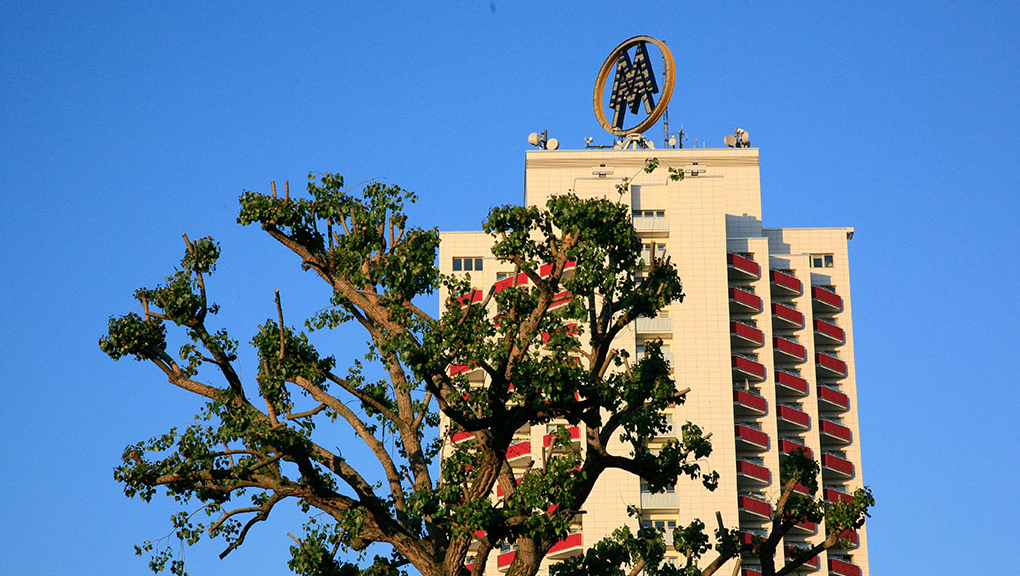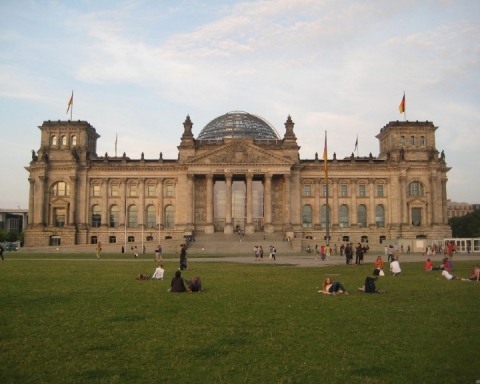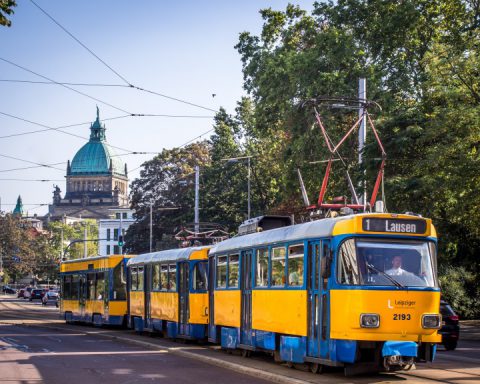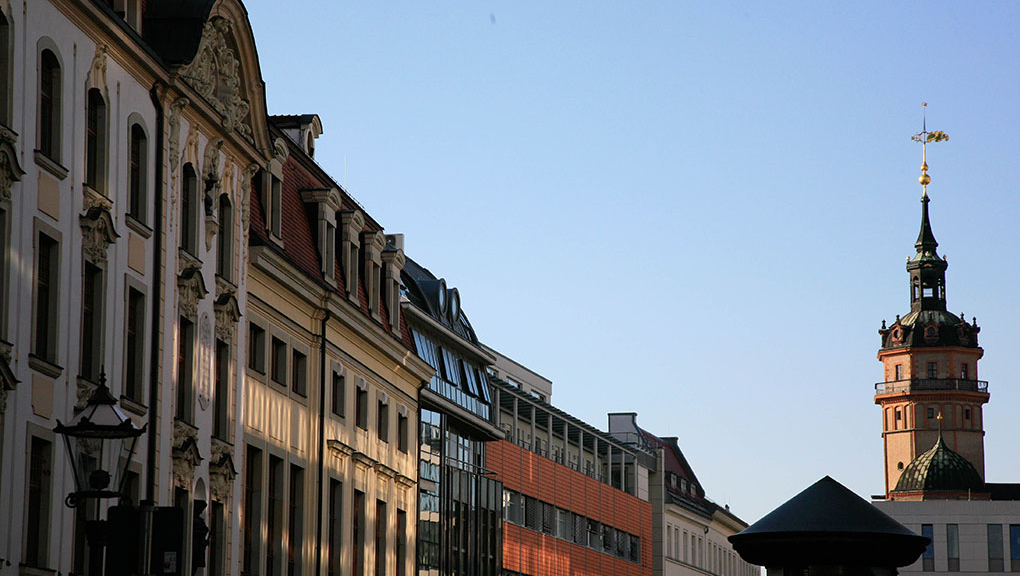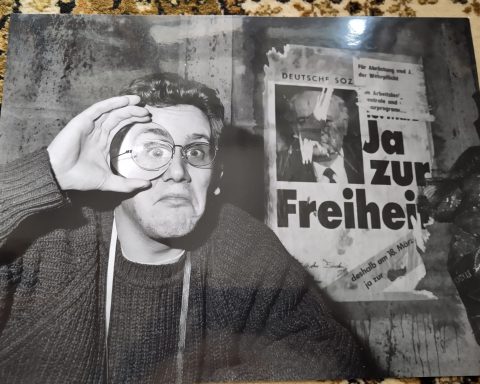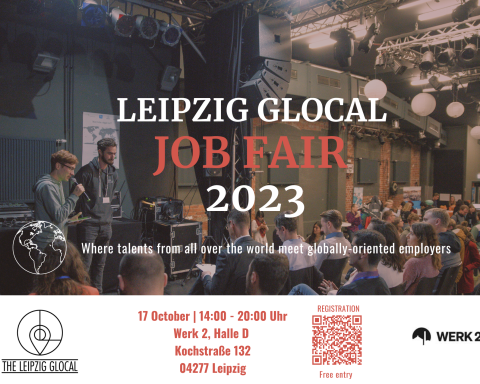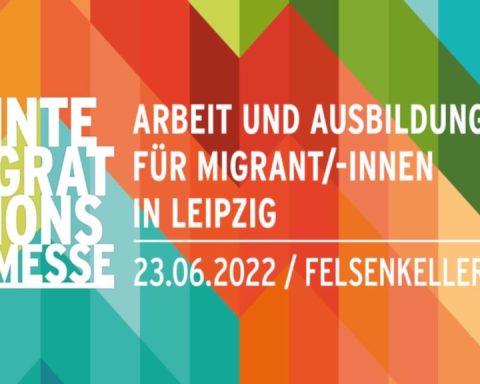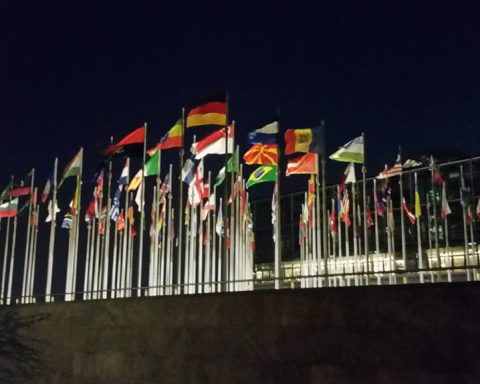Christopher Zenker (SPD) lives in Leipzig and is an incumbent candidate for City Council in Circuit 4, Leipzig South. This interview with him is part of our series on the City Council and European Parliament elections of 26 May 2019. We invited all Leipzig candidates of all major parties (CDU, SPD, Grüne, Die Linke, FDP and AfD) to answer the questions below. Our aim is for our audience to get to meet the candidates and know their political stances better. All questions and answers are provided in German and English. The answers to the questions and any other opinions provided by them are the candidates’ own.
Christopher Zenker (SPD) lebt in Leipzig und ist amtierender Kandidat für den Stadtrat im Wahlkreis 4, Leipzig-Süd. Dieses Interview mit ihm ist Teil unserer Reihe über die Stadtrats- und Europawahlen am 26. Mai 2019. Wir haben alle Leipziger Kandidat_innen aller großen Parteien (CDU, SPD, Grüne, Die Linke, FDP und AfD) eingeladen, die folgenden Fragen zu beantworten. Unser Ziel ist, dass unser Publikum die Kandidat_innen und ihre politischen Standpunkte besser kennenlernt. Alle Fragen und Antworten zeigen wir in deutscher und englischer Sprache. Die Antworten auf die Fragen und alle anderen von ihnen ausgedrückten Meinungen sind allein die der Kandidaten.

Quelle/Source: Amt für Statistik und Wahlen Leipzig
Wenn man über lokale oder regionale Politik redet, schlafen viele Zuhörer ein… Lokale oder regionale Politik bzw. Wahlkämpfe sind für manche nicht so wichtig oder „sexy“ wie nationale Politik und Bundestagswahlen. Warum sollten sich Menschen für Politik auf lokaler oder regionaler Ebene interessieren? Warum ist diese Ebene der Politik Ihrer Meinung nach wichtig?
When one talks about local or regional politics, many listeners fall asleep… local or regional politics or election campaigns are for some not as important or “sexy” as national politics and federal elections. Why should people be interested in local or regional politics? Why do you consider this level of politics to be important?
Deutsch: In der Tat scheint Kommunalpolitik für viele Menschen ein Teil der Politik zu sein, der nicht besonders „sexy“ wirkt. Das hat sicher auch mit der medialen Aufmerksamkeit zu tun, denn in den Nachrichten spielen natürlich oft die Bundesthemen eine vorrangige Rolle. Das wird allerdings der Kommunalpolitik nicht gerecht, denn ein Großteil der Entscheidungen, die in Stadt- und Gemeinderäten getroffen werden, wirkt sich ganz direkt auf das tägliche Leben der Menschen in unserer Stadt aus.
Ob Bus und Bahn fahren oder wo sie lang fahren hat direkt und indirekt mit Kommunalpolitik zu tun, denn im Stadtrat wird über die Nahverkehrsplanung entschieden. Auch die Straßen und ihr Zustand hängen von Entscheidungen der Kommunalpolitik ab, genauso wie die Förderung von Sportvereinen, der Jugendarbeit und der Kultur. Im Grunde ist die Kommunalpolitik die Ebene des politischen Raums, die für die Menschen am greifbarsten ist und wo sie selbst auch den meisten Einfluss nehmen können. Die Kommunalpolitik ist am nächsten dran am Leben der Menschen.
English: Indeed, for many people, local politics seems to be a part of politics that isn’t particularly “sexy.” This certainly also has something to do with media attention, because in the news, of course federal issues often play a primary role. However, this doesn’t do justice to local politics, because a large part of the decisions taken within city and municipal councils have a direct impact on the daily lives of the people in our city.
Whether buses and trains run, or on which routes, has directly and indirectly to do with local politics, because the City Council decides on local transport planning. Also the roads and their condition depend on decisions by local politicians, as does the promotion of sports clubs, youth work, and culture. Basically, local politics is the level of the political space that is most tangible for people and where they themselves can exert the most influence. Local politics is closest to people’s lives.

Für viele junge Menschen ist Leipzig ein attraktiver Ort, um zu studieren oder um eine Ausbildung zu machen. Viele von ihnen finden danach aber keinen passenden Arbeitsplatz und müssen in andere Städte wie Berlin, München oder Hamburg ziehen. Das Bizarre dabei ist, dass Sachsen und Leipzig viel Geld ausgeben, um Arbeitskräfte auszubilden, die dann aber gar nicht in Sachsen, sondern in anderen Bundesländern arbeiten. Was kann man auf der Ebene der lokalen oder regionalen Politik machen, damit in Leipzig ausgebildete junge Leute hier eine langfristige Perspektive haben?
For many young people, Leipzig is an attractive place to study or do vocational training. However, many of them can’t find a suitable job afterwards and have to move to other cities such as Berlin, Munich or Hamburg. The bizarre thing is that Saxony and Leipzig spend a lot of money on training people who then work not in Saxony, but in other German regions. What can you do at the level of local or regional politics to give young people trained in Leipzig long-term prospects here?
Deutsch: Wir können natürlich auch auf lokaler Ebene nicht die Arbeitsplätze schaffen, die dafür sorgen, dass die fertigen Azubis und die Absolvent/-innen unserer Hochschulen auch tatsächlich in Leipzig oder in Sachsen bleiben. Wir haben aber eine gute Entwicklung vor Ort. Trotz des starken Zuzugs, den wir in Leipzig seit einigen Jahren erleben, ist die Arbeitslosenquote sehr deutlich gesunken. Sie hat sich in den letzten 5 Jahren halbiert; aber eben nicht, weil die Leute woanders arbeiten und nur in der Stadt leben, sondern weil auch die Zahl der sozialversicherungspflichtigen Arbeitsverhältnisse in Leipzig selbst deutlich gestiegen ist.
Als Kommunalpolitiker können wir Einfluss auf die Strategie der Wirtschaftsförderung nehmen, um Leipzig als Wirtschaftsstandort attraktiver zu machen. Zudem sind das viele Grün, unser Kulturangebot und das vielfältige Vereinsleben weiche Standortfaktoren, die Leipzig interessant machen für Unternehmen. Das führt im Umkehrschluss dann auch zu mehr Jobmöglichkeiten vor Ort.
Wir dürfen aber auch nicht naiv sein, denn viele junge Menschen, die mit der Ausbildung oder dem Studium fertig sind, sind sehr mobil und suchen sich ihren Arbeitsplatz auch nach dem Gehalt aus, das sie für ihre Arbeit bekommen. Und da ist gerade Ostdeutschland nicht sonderlich attraktiv. Über die Kommunalpolitik kann das jedoch kaum beeinflusst werden. Ich denke aber, dass der aktuelle Fachkräftemangel auch dazu führt, dass die Arbeitgeber/-innen gezwungen sind, bessere Löhne zu zahlen, um Mitarbeiter/-innen binden zu können.
English: Naturally, even at the local level, we can’t create the jobs that would indeed also make finished apprentices and our universities’ graduates stay in Leipzig or Saxony. But we’re having good local development. Despite the strong influx that we have been seeing in Leipzig for some years, the unemployment rate has fallen very significantly. It has halved in the last 5 years; yet not because people work elsewhere and only live in the city, but because also the number of jobs subject to social security contributions in Leipzig itself has risen significantly.
As local politicians, we can influence the strategy of economic development in order to make Leipzig a more attractive business location. In addition, the many green areas, our cultural offer and the diverse association life are soft location factors that make Leipzig interesting for companies. Conversely, this then also leads to more local job opportunities.
But we mustn’t be naive either, because many young people who have completed their training or studies are very mobile and choose their jobs also according to the salary they receive for their work. And here East Germany isn’t particularly attractive. However, local politics can hardly influence that. But I think that the current shortage of skilled workers also leads to employers being forced to pay better wages in order to be able to retain employees.
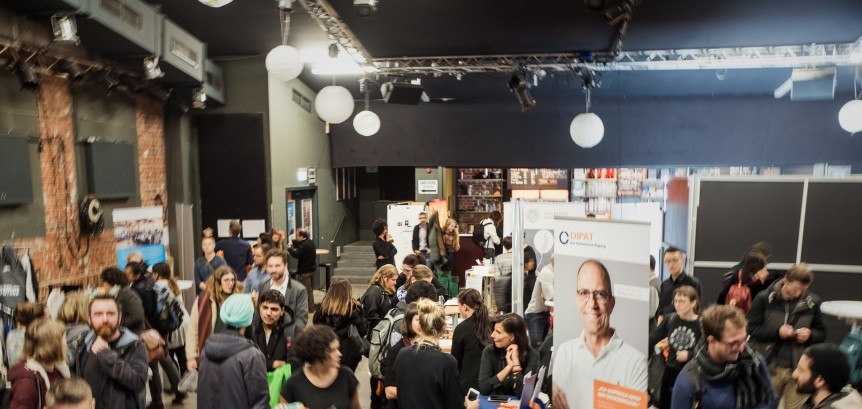
Für viele junge Familien ist es schwierig, in Leipzig zu bleiben, weil es relativ wenige Kitas gibt und die Mietpreise jedes Jahr steigen. Wie sollten diese Probleme Ihrer Meinung nach gelöst werden?
For many young families, it’s difficult to stay in Leipzig because there are relatively few day-care centers, and rental prices rise every year. How do you think these problems should be solved?
Deutsch: Bei der Kita-Thematik sind wir auf einem guten Weg, auch weil wir vor zwei Jahren durchgesetzt haben, dass die Stadt gleichzeitig den Bau mehrerer Kindertagesstätten auf kommunalen Grundstücken ausgeschrieben hat. Zu den 8.000 neuen Plätzen in den letzten fünf Jahren kommen 2019/20 bis zu 6.000 Plätze hinzu. Davon über 1.700 Plätze aus dem von der SPD initiierten Sofortprogramm. April nächsten Jahres wird die letzte Kita aus diesem Sofortprogramm ihren Betrieb aufnehmen. Wenn es so läuft, wie geplant, haben wir Anfang 2020 endlich die Bedarfsdeckung erreicht. Dennoch müssen weiter zusätzliche Plätze geschaffen werden, denn unsere Stadt wächst auch weiterhin. Wir benötigen jedoch nicht nur Plätze, sondern auch Erzieher/-innen. Die SPD-Fraktion war es, die die berufsbegleitende Ausbildung auch in kommunalen Kitas durchgesetzt hat.
Die Mietpreisentwicklung ist für viele Leipzigerinnen und Leipziger ein Problem, also auch für Familien. Es gibt eigentlich nur zwei Instrumente, der Wohnungsknappheit entgegen zu wirken: 1. Reaktivierung von bisher nicht genutztem Wohnraum durch Sanierung und 2. Neubau von Wohnungen. Allerdings sind die Mieten in frisch sanierten oder neu gebauten Häusern deutlich höher. Aufgrund der Baukostenentwicklung sind Kaltmieten im Neubau von unter 10 Euro pro Quadratmeter nicht wirtschaftlich, weder bei privaten Vermietern noch bei der städtischen LWB.
Wir haben uns deshalb schon sehr lange für eine soziale Wohnraumförderung stark gemacht und sehen hier eine Möglichkeit, bezahlbaren Wohnraum auf dem Markt zu bringen. Aufgrund einer Initiative der Leipzig SPD-Fraktion zur kooperativen Baulandentwicklung werden mittlerweile die Investoren bei großen Vorhaben, wie am Freiladebahnhof und am Bayerischen Bahnhof, dazu verpflichtet, 30 Prozent sozialen Wohnraum in den Quartieren zu schaffen.
Die SPD-Fraktion selbst hat im Zuge der Haushaltsdiskussion eine Entwicklung des Kiebitzmarktes in Paunsdorf zu einem neuen Quartier mit mehreren Tausend Wohnungen und einer hohen Quote an sozialem Wohnraum vorgeschlagen. Bereits Ende der 1980 Jahre wurde das Areal erschlossen und sollte als Erweiterung des Wohngebiets Paunsdorf bebaut werden. Aufgrund der Bevölkerungsentwicklung am Anfang der 1990er-Jahre wurde das Projekt ad acta gelegt. Wir sehen die Zeit als gekommen an, dass es sich lohnt, hier einen neuen Vorstoß zu wagen. Darüber hinaus haben wir aktuell einen Antrag im Verfahren, der die Stadt auffordert, Grundstücke des Bundes zu kaufen, um sie unter anderem für sozialen Wohnungsbau zu nutzen. Neben sozialen Wohnungsbau halten wir auch Maßnahmen wie soziale Erhaltungssatzungen, Kappungsgrenzen und eine funktionierende Mietpreisbremse für wichtige Maßnahmen im Gesamtpaket.
English: When it comes to the topic of daycare centers, we’re on a good track, also because two years ago we made the City simultaneously tender the construction of several daycare centers on municipal plots. To the 8,000 new places of the last five years, up to 6,000 places will be added in 2019/20. Over 1,700 of them are from the instant program initiated by the SPD. In April next year, the last daycare center from that instant program will start operations. If things go as planned, we will finally have met the needs at the beginning of 2020. Nevertheless, additional places must keep being created, because our city continues to grow. However, we need not only places for children, but also educators. It was the SPD Council Group that pushed through in-service training also in municipal daycare centers.
Rental price developments are a problem for many Leipzigers, so also for families. Actually, there are only two instruments to counteract the housing shortage: 1. reactivation of hitherto unused housing space through renovation and 2. new construction of apartments. However, rents in freshly renovated or newly built houses are significantly higher. Due to the development in construction costs, rent prices before utilities in new buildings of less than 10 euros per square meter are not economically viable, neither with private landlords nor with the City’s LWB.
Therefore, we’ve been advocating for social promotion of housing already for a very long time, and see an opportunity here to bring affordable housing onto the market. As a result of an initiative by the Leipzig SPD Council Group for the cooperative development of building land, investors of large projects, such as Freiladebahnhof and Bayerischer Bahnhof, are now obliged to create 30 percent of social housing in the neighborhoods.
In the course of the budget debate, the SPD Group itself proposed the development of Kiebitzmarkt in Paunsdorf into a new neighborhood with several thousand apartments and a high quota of social housing space. Already at the end of the 1980s, the area had been developed and was to be built on as an extension of the Paunsdorf residential area. Owing to the demographic development at the beginning of the 1990s, the project was abandoned. We think that the time has come for a new venture to be worthwhile here. Moreover, we currently have an application running that asks the City to purchase federal plots to use them for, among other things, social housing construction. Besides social housing construction, we also consider measures such as social preservation statutes, rent increase caps and functioning rent controls to be important measures in the overall package.
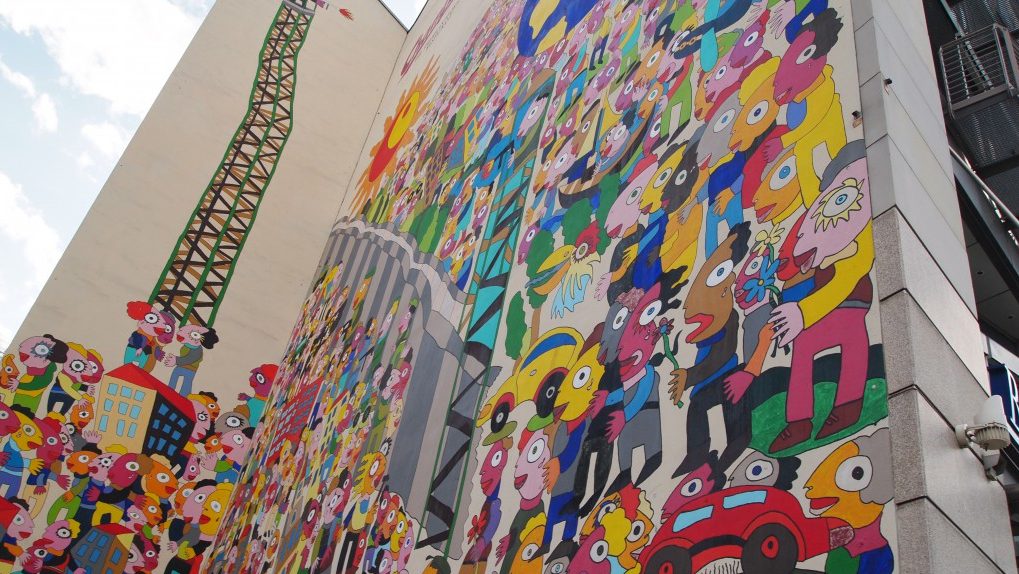
Nach den Ereignissen in Chemnitz letztes Jahr ist der Ruf Sachsens vor allem in Bezug auf seine Weltoffenheit für viele Leipziger, Deutsche und Menschen in anderen Ländern schlechter geworden. Was werden Sie tun, um Sachsens Ruf in dieser Hinsicht zu verbessern?
After the events in Chemnitz last year, Saxony’s reputation has deteriorated for many Leipzigers, Germans and people in other countries, regarding especially its openness to the world. What will you do to improve Saxony’s reputation in this respect?
Deutsch: Ich denke, dass gerade Leipzig, was die Weltoffenheit betrifft, einen guten Ruf hat. Da ist auch die Kommunalpolitik gut beraten, hierbei keine Abstriche zu machen, denn auch das ist Teil unseres Selbstverständnisses, das auch zur Attraktivität unserer Stadt beiträgt.
Die Leipziger Stadtgesellschaft, beginnend beim Oberbürgermeister über Unternehmen, Gewerkschaften, Kirchen bis hin zu vielen Vereinen, Initiativen und den Bürger/-innen, war immer aktiv, wenn Rechte versucht haben, die Stadt zu vereinnahmen. Dennoch dürfen wir uns nichts vormachen, auch in unserer Stadt gibt es Rechtsradikale und diesen müssen wir immer wieder aktiv entgegentreten. Ich werde weiter für ein offenes Leipzig und Sachsen kämpfen, ganz persönlich, aber auch indem ich dafür eintrete, dass Mittel für Demokratieprojekte und Projekte gegen Rechtsradikale und gegen Rassismus und Diskriminierung bereitgestellt werden.
English: I think that Leipzig, in particular, has a good reputation in terms of cosmopolitanism. Local politicians, too, would be well-advised not to make any compromises here, because also this is part of our self-understanding, which contributes to our city’s attractiveness.
The society within Leipzig, ranging from the head mayor to companies, trade unions, churches, and to many associations, initiatives and citizens, has always been active when right-wing radicals tried to take control of the city. Nevertheless, we mustn’t deceive ourselves; in our city, too, there are right-wing radicals, and we must again and again counter them actively. I will continue to fight for an open Leipzig and Saxony, very personally, but also by advocating that funds be provided for democracy projects and projects against right-wing radicals and against racism and discrimination.
Viele Arbeitgeber in Leipzig hatten in den letzten Jahren Schwierigkeiten, qualifizierte Nicht-EU-Arbeitskräfte in Bereichen mit Arbeitskräftemangel zu beschäftigen, weil die Ausländerbehörde entweder Anträge zu langsam bearbeitet oder viel strenger ist als in anderen deutschen Städten. Was sollte die Politik hier Ihrer Meinung nach tun?
In recent years, many employers in Leipzig have had difficulties employing qualified non-EU workers in areas with labor shortages because the Foreigners’ Authority either processes applications too slowly or is much stricter than in other German cities. What do you think politicians should do about this?
Deutsch: Wir kennen dies auch aus Schilderungen von Betroffenen und stehen deshalb mit der Stadtverwaltung im Austausch, um zu klären, wie eine schnellere Bearbeitung von Fällen gelingen kann. Zuletzt hatten wir diesbezüglich auch eine Anfrage an die Stadtverwaltung gestellt. Wir wollen, dass die Ausländerbehörde schneller und besser wird, im Sinne der Betroffenen und der Unternehmen, die dringend Fachkräfte benötigen. Dazu gehört auch eine interkulturelle Stärkung.
Fakt ist allerdings auch, dass in der Leipziger Ausländerbehörde sachsenweit die meisten Fälle bearbeitet werden müssen, was sich eben auch auf die Bearbeitungszeiten auswirkt. Wir müssen daher auch überprüfen, ob die Behörde ausreichend Personal zur Verfügung hat.
English: We know this also from descriptions by those affected, and are therefore in contact with the City Administration to clarify how cases may be processed more quickly. Recently, we had also made a query to the City Administration in this regard. We want the Foreigner’s Authority to become faster and better, in the interest of those affected and of companies that urgently need skilled workers. This also includes intercultural strengthening.
However, it’s also a fact that most cases in Saxony must be processed by the Leipzig Foreigner’s Authority, which then also has an impact on processing times. Therefore, we also need to check whether the Authority is equipped with enough staff.
Klimawandel trifft jeden Ort. Können Sie kurz erläutern, was Ihre Meinung zur aktuellen regionalen Klimapolitik ist?
Climate change affects every place. Can you briefly explain what your opinion is on current regional climate policy?
Deutsch: Klimaschutz ist in der Tat eine der großen Fragen, der wir uns stellen müssen, nicht nur regional, sondern auch international. Die Stadt Leipzig hat hierfür ein Energie- und Klimaschutzprogramm erarbeitet, das verschiedene Instrumente enthält, um den Klimaschutz in unserer Stadt zu gestalteten. Als Langfristziel hat die Stadt bis 2050 eine Reduzierung des CO2-Ausstoßes pro Einwohner auf 2,5 Tonnen festgeschrieben. Das ist ambitioniert, aber aus meiner Sicht durchaus machbar, wenn wir an den richtigen Stellschrauben drehen. Die Stadt Leipzig fördert deshalb unter anderem auch das Cluster „Energie und Umwelttechnik“, um hier von Innovationen zu profitieren.
Der Verkehr ist zudem einer der großen Faktoren, die den CO2-Ausstoß verändern. Wir haben deshalb im Herbst vergangenen Jahres das sogenannte Nachhaltigkeitsszenario für die Reorganisation des städtischen Verkehrs im Rat beschlossen. Um mehr Leute zum Umstieg auf den Umweltverbund zu bewegen, fordern wir zum Beispiel ein 365-Euro-Jahresticket für den ÖPNV, bessere Radwegverbindungen und gute Gehwege. Darüber hinaus werden die Leipziger Stadtwerke eine wichtige Rolle beim kommunalen Klimaschutz spielen. Diese planen gerade den Ausstieg aus dem Bezug von Fernwärme, die mittels Braunkohle erzeugt wird.
English: Climate protection is indeed one of the big questions we must confront, not only regionally but also internationally. For this, the City of Leipzig has drawn up an energy and climate protection program that contains various instruments for shaping climate protection in our city. As a long-term goal, the City has determined a reduction of CO2 emissions to 2.5 tons per inhabitant by 2050. This is ambitious, but in my view quite feasible if we make the right adjustments. Therefore, the City of Leipzig is also supporting, among other things, the “Energy and Environmental Technology” cluster, to benefit from innovations here.
Moreover, transport is one of the major factors that alter CO2 emissions. In Council last autumn, we therefore adopted the so-called “Sustainability Scenario for the Reorganization of Urban Transport.” To prompt more people to switch to sustainable modes of transport, we are calling, for example, for a 365-euro annual public transport ticket, better bike path connections, and good pedestrian paths. Furthermore, Leipzig’s Municipal Utilities will play an important role in municipal climate protection. They are currently planning to phase out purchasing long-distance heating generated from brown coal.

Wie sehen Sie Leipzig und Sachsen im Jahr 2040?
How do you see Leipzig in the year 2040?
Deutsch: Leipzig ist im Jahr 2040 weiterhin eine lebendige, soziale und bunte Stadt für alle. Wohnen ist bezahlbar, Betreuungsplätze für Kinder findet man problemlos, die Arbeitslosigkeit ist weiter gesunken, die Stadt ist eine umweltfreundliche Energiemetropole, und es ist trotz Wachstum gelungen, Verdrängung zu verhindern und die breite Vereinslandschaft, von Jugendhilfe über Soziales bis hin zu Sport und Kultur, konnte erhalten werden.
Die Weichen dafür müssen heute schon gestellt werden, indem wir unter anderem den Stadtverkehr neu organisieren, den Wohnungsbau voranbringen, deutlich in die Bildungslandschaft investieren und die Wirtschaftsförderpolitik der Stadt gezielt darauf ausrichten, Bestandsunternehmen zu stärken und auch Neuansiedlungen nicht vernachlässigen.
Der Freistaat Sachsen hat sich in den vergangenen 30 Jahren gut entwickelt. Auch für die kommenden rund 20 Jahre kann ich mir gut vorstellen, dass die Lebensqualität weiter steigen wird. Allerdings ist auch hier eine vorausschauende Politik notwendig, wie es sie gibt, seit die SPD wieder im Land mitregiert. Was im Freistaat noch nicht wirklich funktioniert, ist die Verzahnung von ländlichem Raum und den drei Großstädten. Wenn dies gelingt und Leipzig, Dresden sowie Chemnitz als die Motoren der Entwicklung des Landes verstanden werden und nicht als Konkurrenz zum ländlichen Raum, eröffnet das für das Land neue Perspektiven.
English: In 2040, Leipzig will still be a lively, social and colorful city for all. Housing is affordable, childcare places can be found without problems, unemployment has fallen further, the city is an environmental-friendly energy metropolis, and despite growth, one has succeeded in preventing displacement, and it has been possible to preserve the wide range of associations, from youth welfare to social services to sports and culture.
The course for this must already be set today by, among other things, reorganizing urban transport, advancing housing construction, investing significantly in the educational landscape, and gearing the City’s economic development policy explicitly towards strengthening existing companies without neglecting new settlements.
The Free State of Saxony has developed well during the past 30 years. Also for the next 20 years or so, I can well imagine that the quality of life will continue to rise. However, also here, a forward-looking policy is necessary, as it has existed since the SPD reentered the state’s government. What isn’t really working yet in the Free State is the interconnection of rural areas and the three large cities. If this succeeds and Leipzig, Dresden and Chemnitz are understood as engines of the state’s development and not as competition for rural areas, this will create new prospects for the state.

